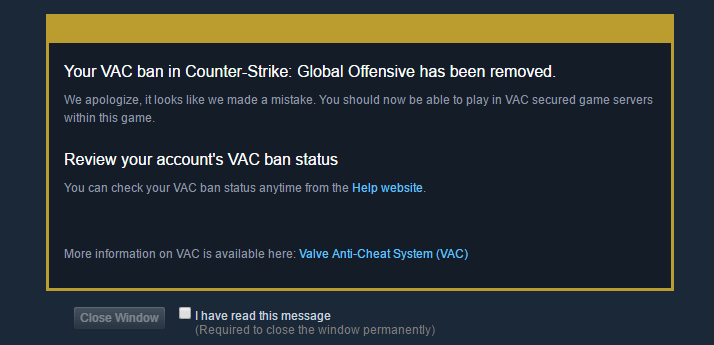Southeast Insights
Your go-to source for news and information from the vibrant heart of Shenyang.
CSGO Toxicity Reports: The Unsung Heroes of a Fair Game
Explore how CSGO Toxicity Reports expose players and promote fairness in gaming. Discover the unsung heroes fighting for a better community!
Understanding CSGO Toxicity: How Reports Keep the Game Fair
Counter-Strike: Global Offensive (CSGO) is heralded for its competitive gameplay and strategic depth, but it’s not without its pitfalls. One significant issue within the community is toxicity, which can manifest through verbal abuse, disruptive behavior, or unsportsmanlike conduct. Understanding CSGO toxicity is essential for players and developers alike, as it can greatly diminish the overall gaming experience. Reports from players are crucial for maintaining a healthy environment, allowing the community to self-regulate and holding toxic individuals accountable.
The reporting system in CSGO plays a pivotal role in ensuring that players encounter a fair and enjoyable gaming experience. When players submit a report, it triggers a review process that assesses whether the reported behavior breaches the game’s code of conduct. This not only works as a deterrent against toxic behavior but also encourages players to engage positively with one another. By actively participating in the reporting system, players can contribute to a culture of respect and sportsmanship, leading to a better gaming environment for everyone involved.

Counter-Strike is a popular first-person shooter game that has captivated players around the world. Its competitive nature and strategic gameplay make it a favorite in esports. Players are often frustrated when they encounter issues, such as when a match demo has expired cs2, which can affect their ability to review gameplay and improve their skills.
The Role of Community Reporting in CSGO: An Inside Look
Community reporting has become a vital component in the ecosystem of CSGO, ensuring a level playing field for all players. Players often encounter instances of cheating, toxic behavior, and other disruptive actions that can detract from the overall gaming experience. Thanks to the community's active involvement, reports can be submitted quickly and efficiently, allowing the game developers to take necessary actions against offenders. This grassroots approach not only empowers players but also fosters a sense of responsibility among the community members themselves to maintain a healthy in-game environment.
Furthermore, community reporting serves as a proactive measure in identifying trends and patterns in player behavior. By analyzing the data collected from these reports, developers at Valve can refine algorithms and improve anti-cheat mechanisms. This ongoing dialogue between players and developers enhances the game's integrity and keeps the competitive landscape vibrant. In essence, the role of community reporting in CSGO is not just about punishment but also about collaboration, as players and developers join forces to create a more enjoyable gaming atmosphere.
Are Toxic Players Ruining Your CSGO Experience? Here's How to Fight Back
In the competitive world of CSGO, the presence of toxic players can significantly tarnish your gaming experience. They can create a hostile environment, leading to frustration and demotivation for players who just want to enjoy the game. Whether it's relentless trash talk, team sabotage, or negative on-screen behavior, these toxic influences can ruin not only individual matches but also overall enjoyment of the game. Recognizing and addressing toxic behavior is critical for maintaining a positive atmosphere in the gaming community.
So, how can you effectively fight back against toxic players? First, utilize the mute and block features available in the game to minimize their impact on your experience. Additionally, consider playing with friends or joining a community that promotes positive interactions. Reporting toxic behavior through the game's reporting system can also contribute to a healthier gaming environment. Remember, your gaming experience is valuable; don't let toxic players take that away from you!